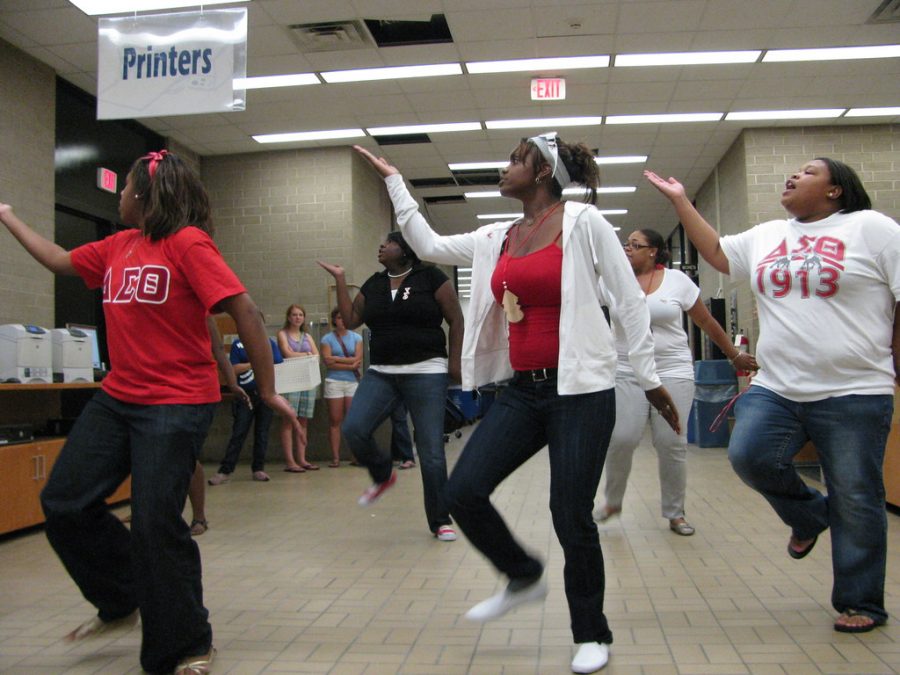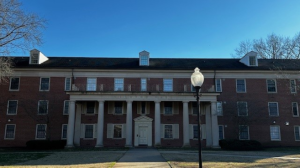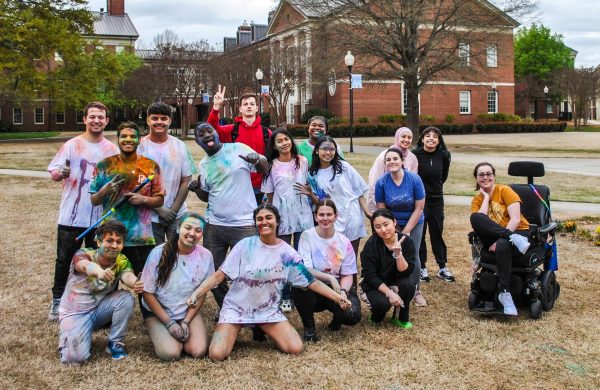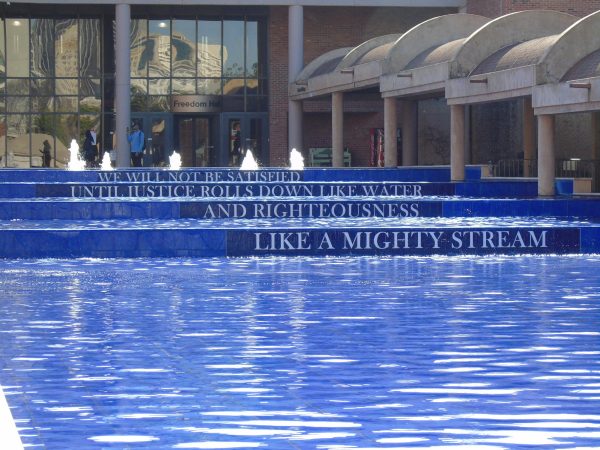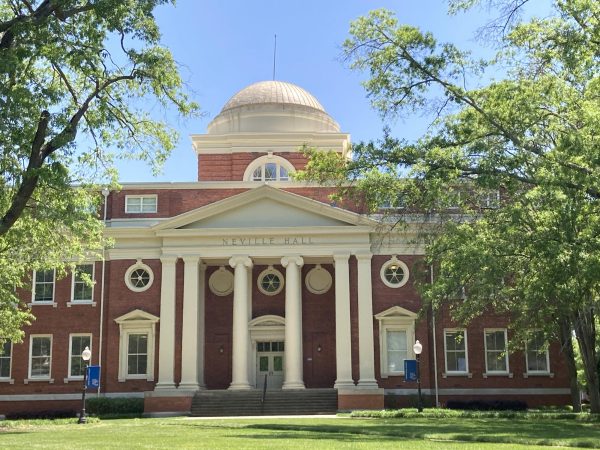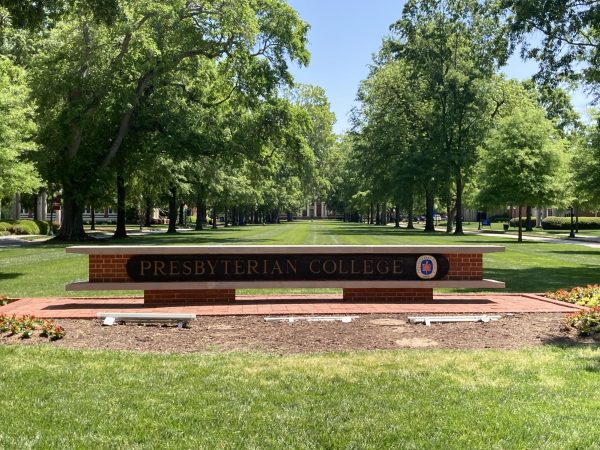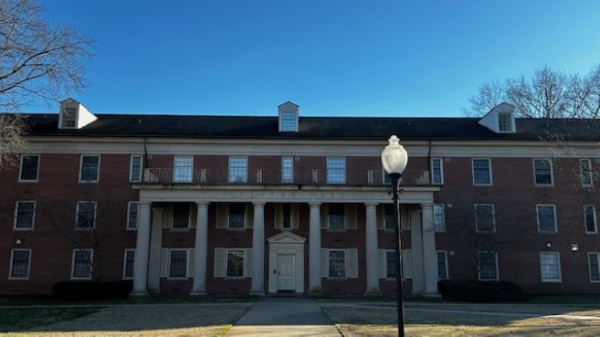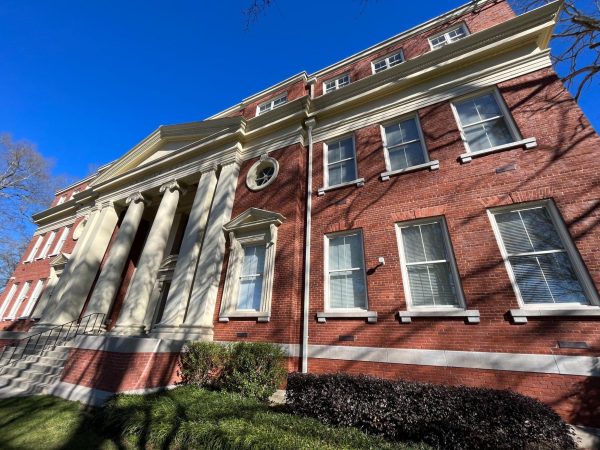Freedom to be
December 2, 2019
At Presbyterian College, there are currently three sororities: Alpha Delta Pi, Sigma Sigma Sigma and Zeta Tau Alpha. On the Presbyterian College Greek Life page, they roughly quote their main focus, which is leadership, scholarship, service, community and social responsibility. Within this section, it raised the question about PC, Will there ever be a black sorority?
The Divine Nine or National Panhellenic Council is a collaborative organization of nine historically African-American, international Greek lettered fraternities and sororities. The Divine Nine was formed at Howard University by Matthew W. Bullock and B. Beatrix Scott. The Divine Nine was created for African-Americans students who had interests in joining Greek life, as they were forbidden to join the existing Greek life on campus. Just like PC’s Greek Life motto, The Divine Nine focuses on community awareness and action through educational, economic and cultural service activities. There’s a clear similarity between their agendas, but a noticeable separation between the two Greek societies.
Minority
By Presbyterian College adding black sororities on campus, it would not only affect the faculty, but also the students. After interviewing students and teachers from various backgrounds, it’s clear that there’s agreement and understanding behind the interviewees’ choices. PC carries a history of honor and controversy when it comes to supporting the minority community. As an anonymous source roughly discussed with me, the current class (class of 2023) is the most heavily black populated class.
Rev. Racquel Gill, Assistant Chaplain for Multicultural Community Engagement, mentioned vaguely on the past influences of black Greek Life on campus. Rev. Gill quoted, “There has been historical African-American fraternities and sororities present before. If not mistaken, Omega Psi Phi.” She then briefly talks about the rumored remains of Delta Sigma Theta. That brought up the idea of what happened to these historical black sororities and fraternities. The only reply that can reasonably answer the question is the lack of student’s involvement within these Greek communities. Ironically, it makes you wonder if this is one of the reasons why PC may never have a black sorority/fraternity.
Cause and Effect
Just like Presbytieran College, students (and faculty) have to take on the effect of adding a black sorority into consideration. Just like lawyers, we have to weigh the pros and cons of adding historical black Greek Life. Although in this situation, the pros and cons contradict themselves as they both deal with segregation. Investing in black Greek Life will create a sense of community amongst the minorities but separation for the remaining ethnicities.
In addition to those I’ve interviewed, adding a black sorority (or fraternity) would be beneficial, but also educational. Rev. Gills spoke heavily on the educational factor of adding a historically black Greek organization on campus. As quoted, “Education has a two way road. It’s the role of certain parties to educate and the role of other parties (students who are not minorities) to be teachable. I think that if other groups are open to learning about African-American historical black sororities and fraternities, I definitely think the opportunity could be there, and these organizations on campus can create awareness on issues that affect the black communities.” Rev. Gills gives the viewpoint through the perspective of a religious leader. But that’s not to say she doesn’t support adding a black sorority/fraternity. Rev. Gills made it clear within her actions and during the interview that she’s working towards adding black Greek Life to campus. Hopefully, through her hard work and efforts this semester, PC will give in and accept black Greek Life.
But, even PC members such as Dr. Laura Crary, Professor of Art History, gave her opinion on PC on adding historical black Greek Life and the educational factor. “I think it could be an extremely valuable addition to campus. As the number of black students on campus increases, having social organizations that address those students’ specific needs seems both wise and just. I would hope there would be methods for bringing all the Greek organizations together in some ways, but having representation comes first.” Each member of the faculty considered adding black Greek Life as an educational opportunity. Although, one can argue and say that it’s a biased statement as each person is a teacher of some sort.
Students on campus also understood the importance of community and education when it comes to diversity. Gene Hawkins, a Freshman majoring in Computer Science, made an interesting point that wasn’t mentioned before. If Presbyterian College would add an organization from The Divine Nine, it could be used as a marketing tool for other minority students applying to Presbyterian College. As a black student, I’ve naturally gravitated towards those of similar background as a way to create a sense of understanding and familiarity. Using this method, PC could have used this as a sense of advertising to increase their number of minority students. It seems like a cruel and sneaky marketing technique, but at the end of the day, who said business was fair? As long as both parties are satisfied, is it truly wrong or unjustified?
Due to time difficulty, I was not able to interview members of the different sororities on campus, but I was given the chance to interview a member of the fraternity Alpha Sigma Phi. Reeves Bridges, Chapter President of Alpha Sigma Phi, also brought up a point that I found interesting. When emailing Reeves, I asked what his opinion was on Presybterian College adding a historically black sorority/fraternity. I wanted him to focus on this point specifically, as he’s currently a member within the Greek life. He replied, “I like the idea of adding a historically black fraternity just because of it meaning more people can feel comfortable joining Greek life, which helps all Greeks.” Reeves and Gene’s opinion created the discussion of who benefits more if a Black Greek organization was added to campus.
The ball is in your court
The question still stands, would PC ever have a black sorority on campus? In a way, it feels like a distant thought even though one could safely say that students and faculty are ready for this change. But we can only wait and see what decisions PC makes when it comes to this situation. We can argue back and forth on the process and the necessities PC needs to bring a Divine Nine organization to campus. But at the end of the day, the ball is in your court, PC.

